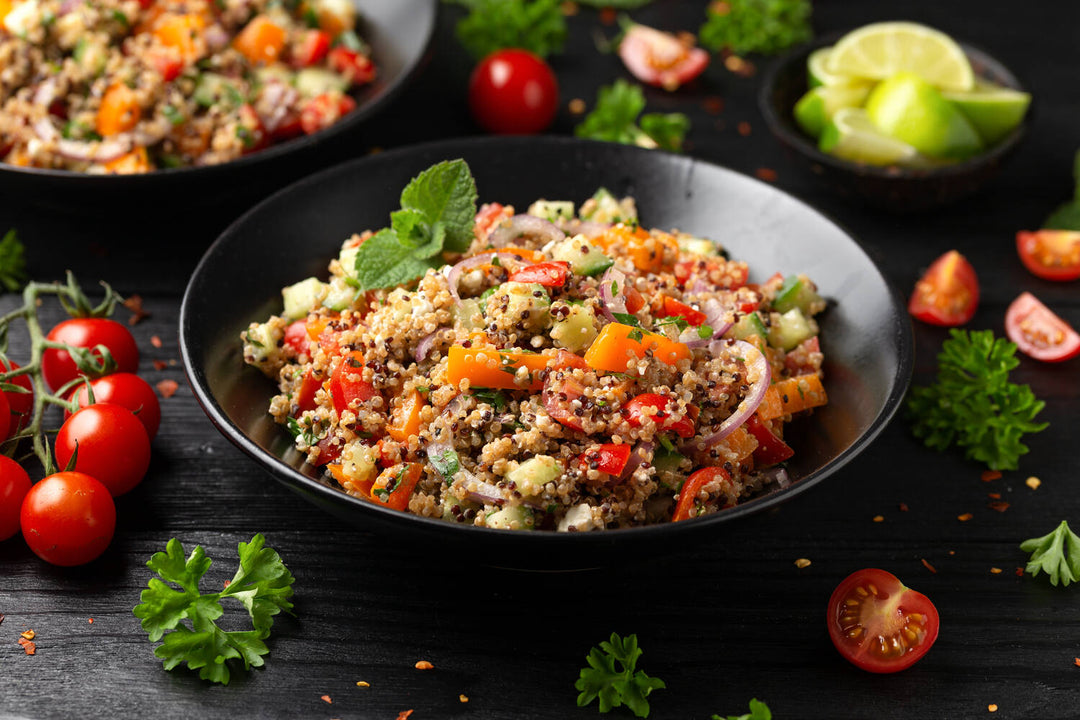Why Am I Craving Protein?
Ever find yourself asking, why am I craving protein all of a sudden? You're not alone—protein cravings can be confusing, but they're usually a signal that your body needs more of this vital nutrient.
If you're preparing for surgery, recovering from an illness, or undergoing medical treatments,you've come to the right place.
In this article, we dive deeper into the reasons behind these cravings and how protein supports healing, energy, and overall recovery.
We know that high-quality protein is crucial during challenging times, such as bariatric surgery recovery or serious illnesses.
So, if you're ready to understand why protein cravings matter and how to address them, continue reading.
What this article covers:- Understanding Protein Cravings
- Why Are You Craving Protein?
- The Impact of Protein Deficiency
- Signs of Protein Deficiency
- How to Manage Your Protein Cravings
- Protein-Rich Foods to Include in Your Diet
- Reference
Understanding Protein Cravings
Protein cravings often stem from increased needs due to increased physical activity, inadequate protein intake, hormonal changes, muscle growth and repair, blood sugar regulation, and dietary imbalance. Unlike sugar cravings that might just mean you're low on energy, protein cravings are usually more specific—they indicate your body is asking for the building blocks it needs to restore itself.

Why Are You Craving Protein?
Protein cravings can be a sign that your body requires extra support. For those who are preparing for or recovering from surgery, especially bariatric surgery, your body is working hard to heal, and protein plays a key role in this process.
Similarly, during wound care or medical treatments, protein helps support the immune system and repair tissues. When your body craves protein, it's telling you that it needs help replenishing and restoring itself.
The Impact of Protein Deficiency
Not getting enough protein can lead to fatigue, slower recovery times, and even muscle loss. That's why it's vital to listen to your body's signals.
If you're craving protein, it could be a sign that your diet isn't providing what you need to maintain strength and well-being.
Signs of Protein Deficiency
Common signs of protein deficiency include fatigue, hair loss, frequent infections, and a general sense of weakness.¹
If you're recovering from surgery or illness, these symptoms can worsen without proper protein intake. Recognizing these signs early allows you to address them by incorporating more protein into your diet.
How to Manage Your Protein Cravings
So, how do you manage those cravings effectively? One way is to ensure you're consuming high-quality protein that is gentle on the stomach and easy to digest.
Eating balanced meals and spacing out your protein intake can also help, which is why we recommend the 30-30-30 approach—30 grams of protein, three times a day.
Knowing when to eat protein bars can also come in handy, especially as a convenient source of nutrition when you're on the go.

Protein-Rich Foods to Include in Your Diet
When cravings hit, it's important to know where to turn. Here's a list of high protein foods you can add to your daily meals:
- Lean meats, like chicken or turkey
- Fish and seafood
- Eggs
- Low-fat dairy products
- Legumes and beans
- High-quality protein powders, like Unjury®, to supplement your diet
Don't forget how to add protein to salad can be as simple as sprinkling some grilled chicken, beans, or a scoop of protein powder for an extra boost.
Conclusion
When your body craves protein, it's often a signal that you need more support, especially if you're recovering from surgery or illness.
Our protein supplements, Recommended at America’s Top-Rated Hospitals, offer high-quality protein that is North American-sourced and was created by a dietitian to ensure you're getting what your body needs.
Unjury Medical Quality Protein supplements can help you meet those cravings in a way that supports your healing and well-being.*
If you want to learn more, why not check out these articles below:
- How to Add More Protein to Diet
- Does Protein Make You Feel Full
- How Much Protein Should an Athlete Eat
Reference
- Garcia M. Are you getting enough protein? Here's what happens if you don't. Accessed from https://www.uclahealth.org/news/article/are-you-getting-enough-protein-heres-what-happens-if-you-dont.
*These statements have not been evaluated by the Food and Drug Administration. These products are not intended to diagnose, treat, cure, or prevent any disease.











